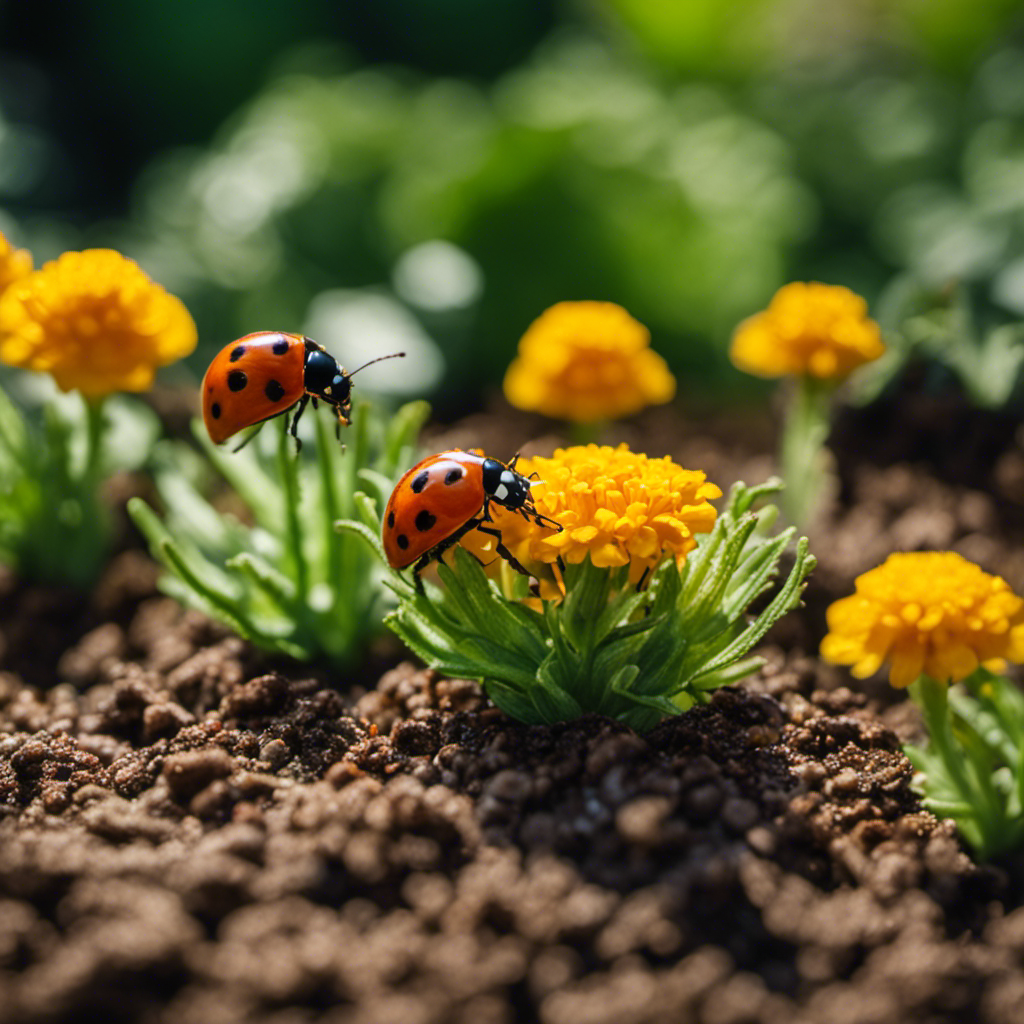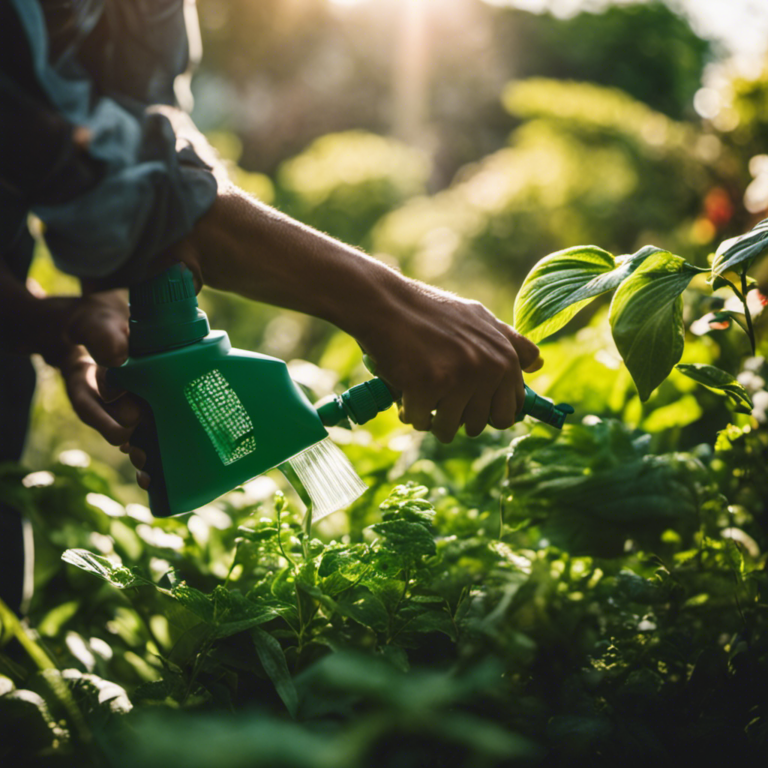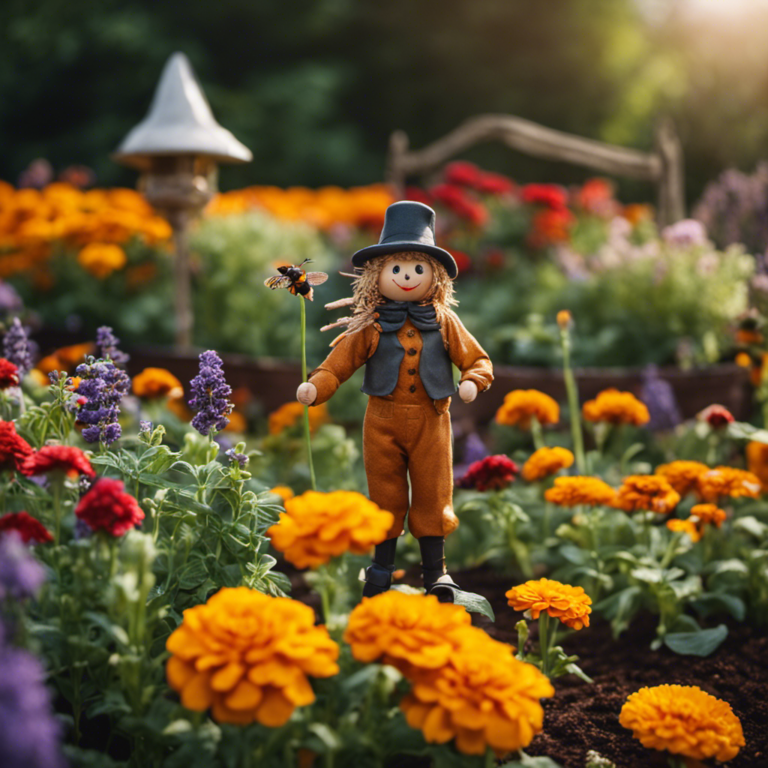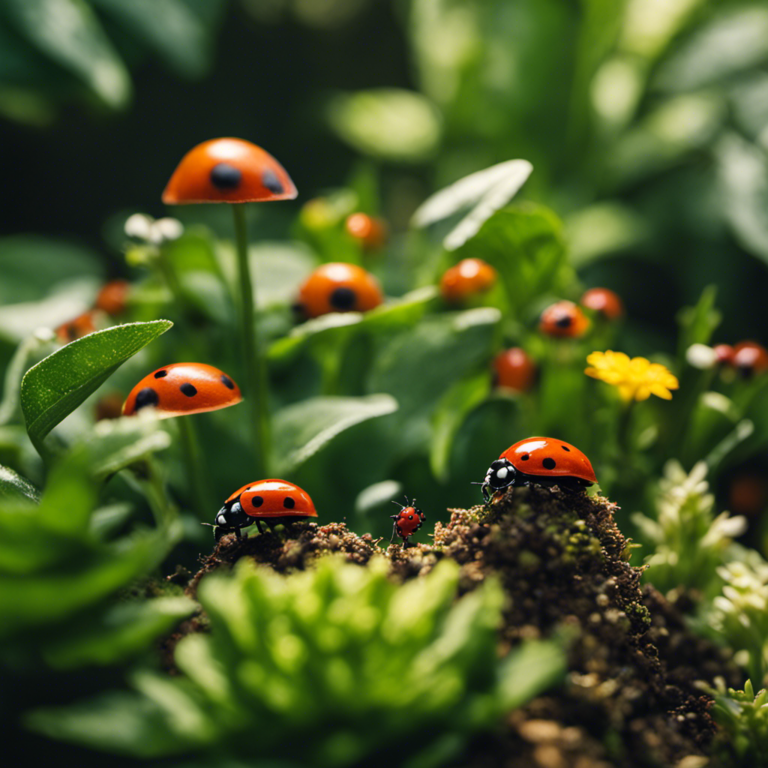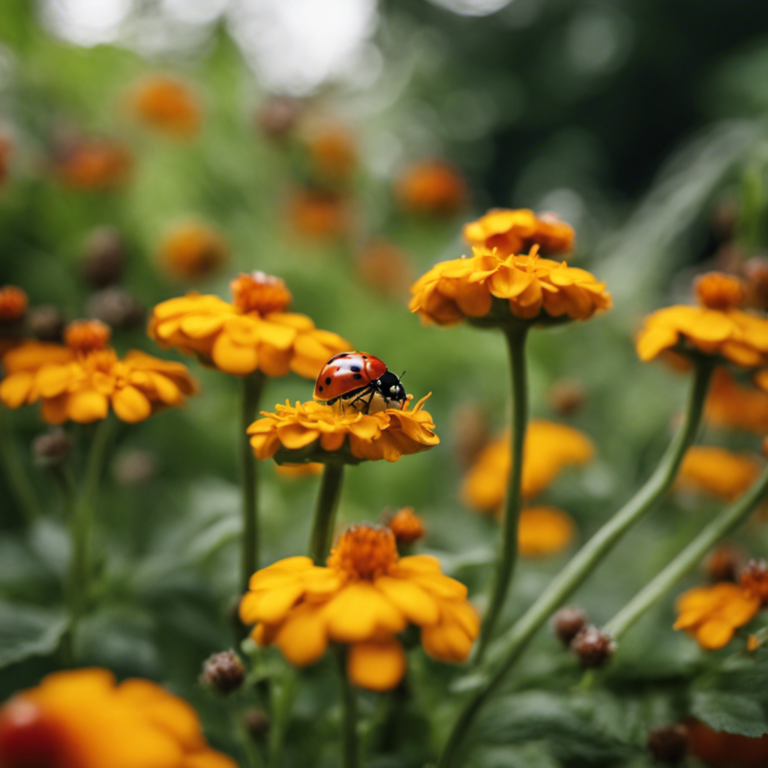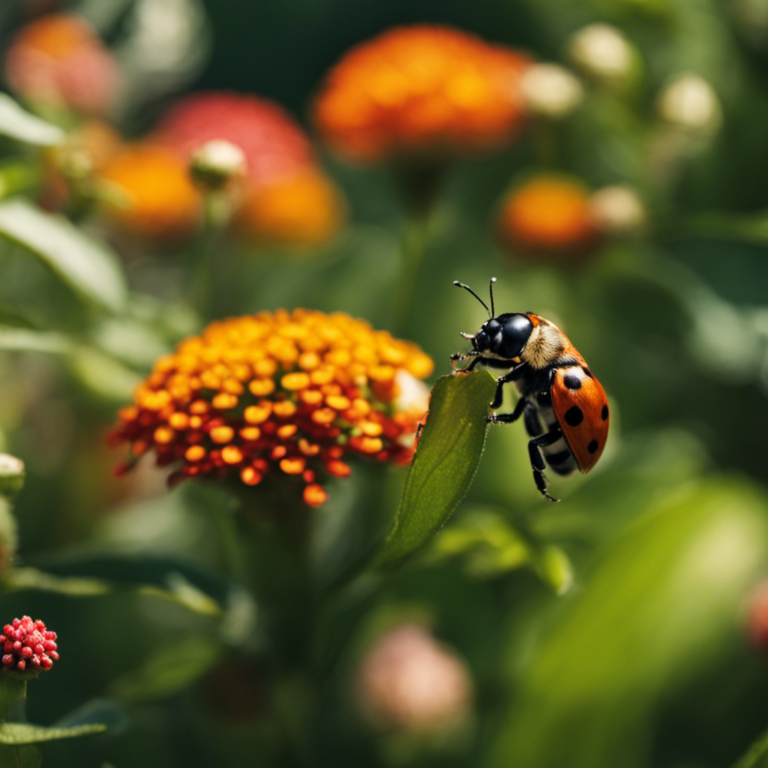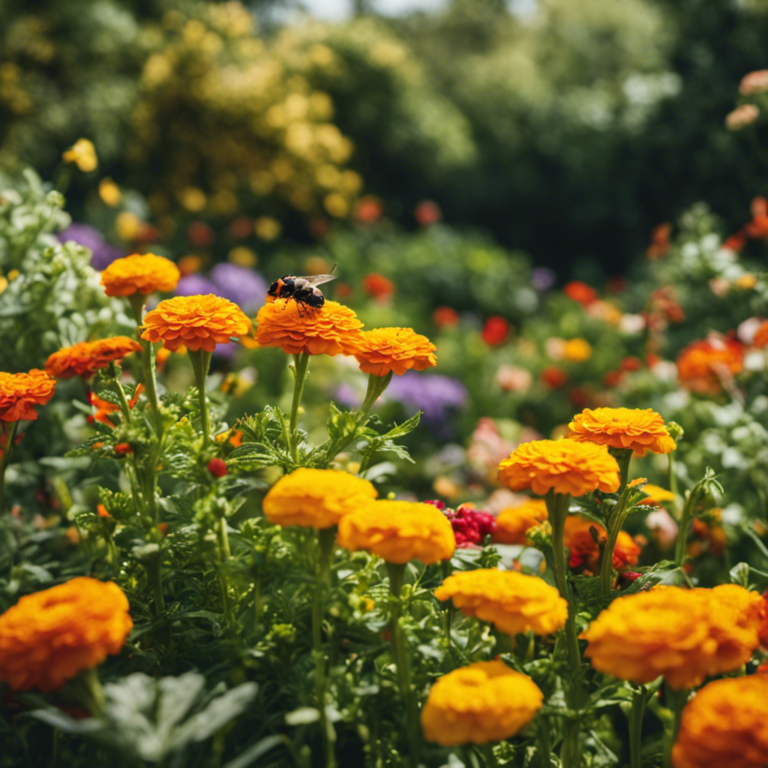Are annoying pests causing trouble in your beloved vegetable garden? No need to worry! You can naturally get rid of those critters and protect your treasured plants. Contrary to what many believe, there’s no need for harsh chemicals or expensive solutions.
In this article, we’ll show you how to:
- Identify common garden pests
- Use physical barriers and traps
- Employ natural pest deterrents
- Attract beneficial insects
- Maintain your garden effectively
With these simple tips, you’ll be able to safeguard your vegetable garden and enjoy abundant harvests.
Key Takeaways
So there you have it, fellow gardeners. By using physical barriers, traps, and natural pest deterrents, as well as attracting beneficial insects and maintaining your garden well, you can naturally get rid of those annoying pests from your beloved vegetable garden.
With these effective techniques, your garden will thrive and flourish, free from the unwanted invaders that pose a threat to your precious plants. Embrace the power of nature and witness your garden transform into a beautiful and abundant sanctuary.
Gardening can be a delightful and rewarding experience, but it can also come with its fair share of challenges. One such challenge is dealing with pests that can wreak havoc on your vegetable garden. However, there are simple and natural ways to safeguard your garden and banish these pests without resorting to harmful chemicals.
Physical barriers like fences and netting can be incredibly effective in keeping pests out of your garden. By creating a physical barrier, you prevent pests from reaching your plants and causing damage. Additionally, traps can be strategically placed to lure and capture pests, reducing their population in your garden.
Natural pest deterrents, such as companion planting and homemade sprays, can also be highly effective. Certain plants, like marigolds and garlic, naturally repel pests and can be planted alongside your vegetables to deter them. Homemade sprays made from ingredients like neem oil or soap can be used to deter pests and protect your plants.
Attracting beneficial insects is another natural pest control method. Ladybugs, lacewings, and praying mantises are natural predators of garden pests and can help keep their populations in check. Planting flowers like daisies and sunflowers can attract these beneficial insects to your garden.
In addition to these methods, proper garden maintenance is essential. Regularly removing weeds and debris helps eliminate hiding places for pests. Keeping your garden clean and well-maintained reduces the likelihood of pests finding a home in your vegetable patch.
By following these natural pest control techniques, you can create a healthy and thriving vegetable garden. Not only will you enjoy a bountiful harvest, but you’ll also have the satisfaction of knowing that you’ve accomplished it using safe and eco-friendly methods.
Remember, gardening is a continuous learning process, and it’s important to stay curious and open to new ideas. Experiment with different techniques and observe what works best for your specific garden. With patience and persistence, you’ll find the perfect balance that allows your vegetables to flourish while keeping pests at bay.
So, fellow gardeners, let’s embrace the power of nature and protect our treasured vegetable gardens from pests. Happy gardening!
Identify Common Garden Pests
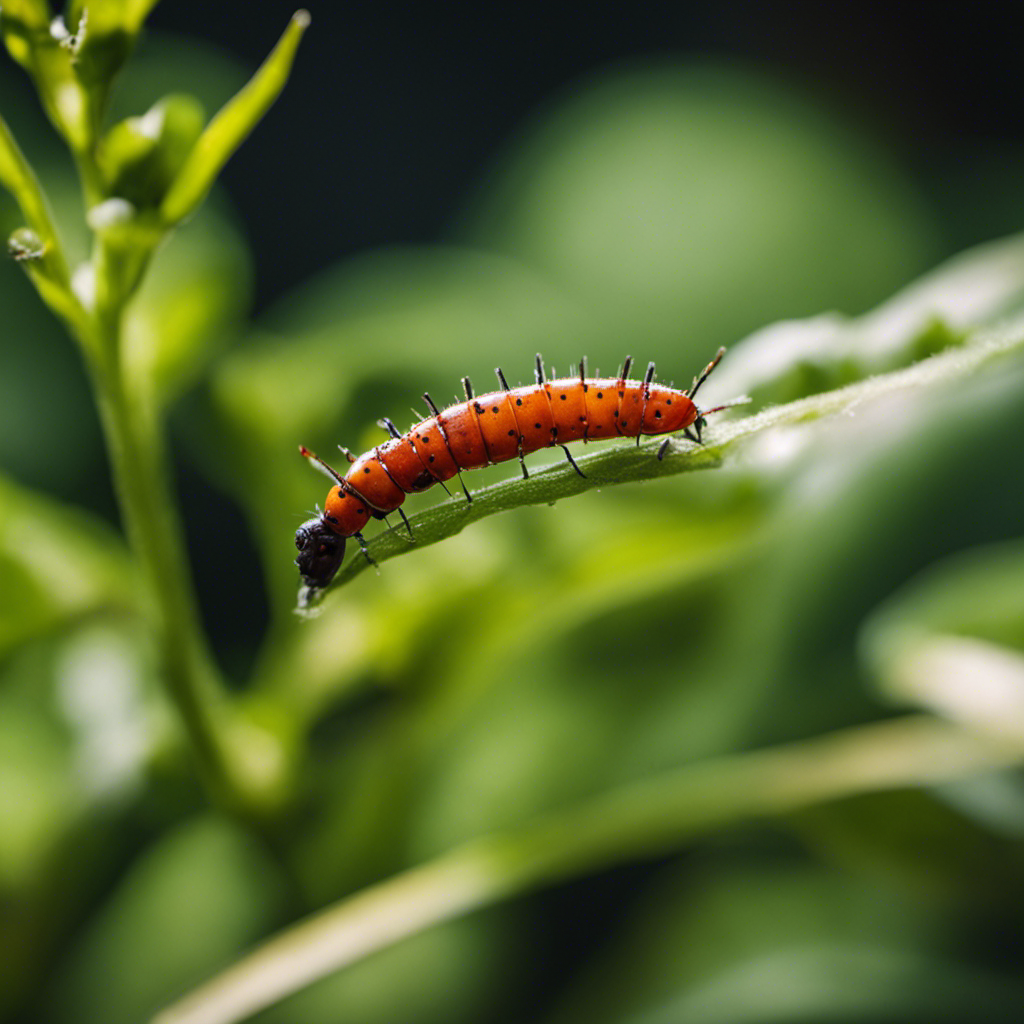
One way to identify common garden pests is by observing their physical characteristics and the damage they cause to your plants. By being able to recognize these pests, you can take preventive measures and use organic pest control methods to protect your garden.
A common garden pest is the aphid, a small insect that can be found in clusters on the undersides of leaves. Aphids suck the sap from plants, causing wilting and stunted growth.
Another common pest is the caterpillar, which can be identified by its cylindrical body and the chewing damage it causes to leaves.
To address these pests, you can introduce natural predators like ladybugs or use organic sprays made from neem oil or garlic extract.
Implement Physical Barriers and Traps
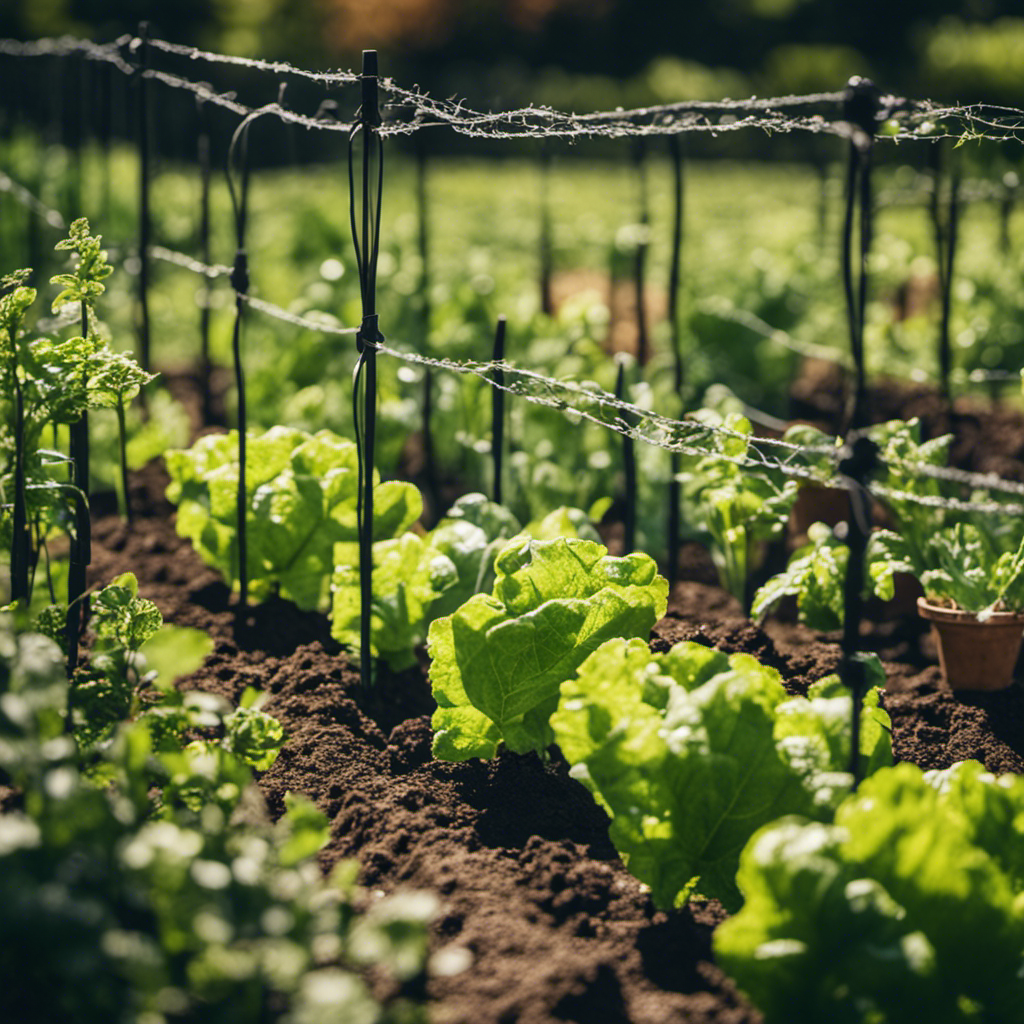
Implementing physical barriers and traps is a practical way to protect your garden from common pests like aphids and caterpillars. These methods are essential for organic gardening and can help safeguard your precious vegetable garden.
One effective physical barrier is a floating row cover, which you can drape over your plants to prevent pests from reaching them. This lightweight fabric allows sunlight and water to pass through while keeping pests out.
Another option is to install a mesh fence around your garden to keep larger pests, such as rabbits and deer, away.
Additionally, you can use traps to attract and capture pests. For instance, yellow sticky traps can lure and trap aphids, whiteflies, and other flying insects.
Utilize Natural Pest Deterrents
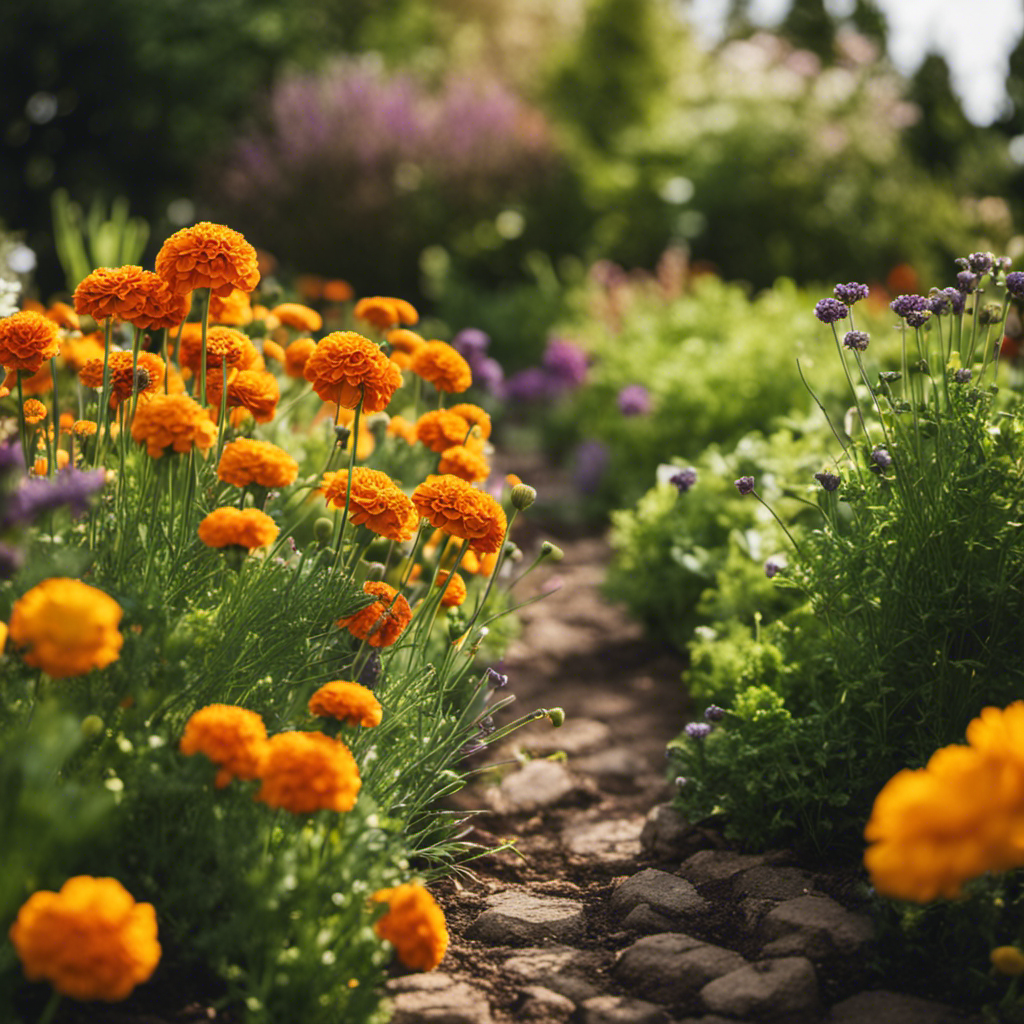
Utilize Natural Pest Deterrents
Start by incorporating natural pest deterrents into your garden routine. These methods aren’t only effective but also safe for your plants, the environment, and your family.
Here are some herbal remedies and companion planting techniques that can help keep pests at bay:
-
Herbal remedies: Certain plants have natural properties that repel pests. For example, you can plant marigolds around your vegetables to deter aphids and nematodes. Mint, basil, and lavender are also effective against pests like mosquitoes and flies. You can make natural sprays using these herbs or simply crush the leaves and scatter them around your garden.
-
Companion planting: This technique involves planting compatible crops together to enhance their growth and naturally repel pests. For instance, you can plant onions or chives alongside tomatoes to deter aphids and other pests. Similarly, growing marigolds near beans can prevent bean beetles. You can refer to companion planting charts to find the best combinations for your vegetable garden.
-
Attract beneficial insects: Encourage helpful insects like ladybugs, lacewings, and praying mantises to visit your garden. These insects feed on pests and can help keep their populations under control. Planting flowers such as daisies, sunflowers, and yarrow will attract these beneficial insects and create a balanced ecosystem in your garden.
-
Practice crop rotation: Rotate your crops each year to break the pest cycle. Pests often lay eggs in the soil, so moving your crops to a different location can reduce their impact. Additionally, rotating crops helps maintain soil fertility and reduces the risk of diseases.
Encourage Beneficial Insects
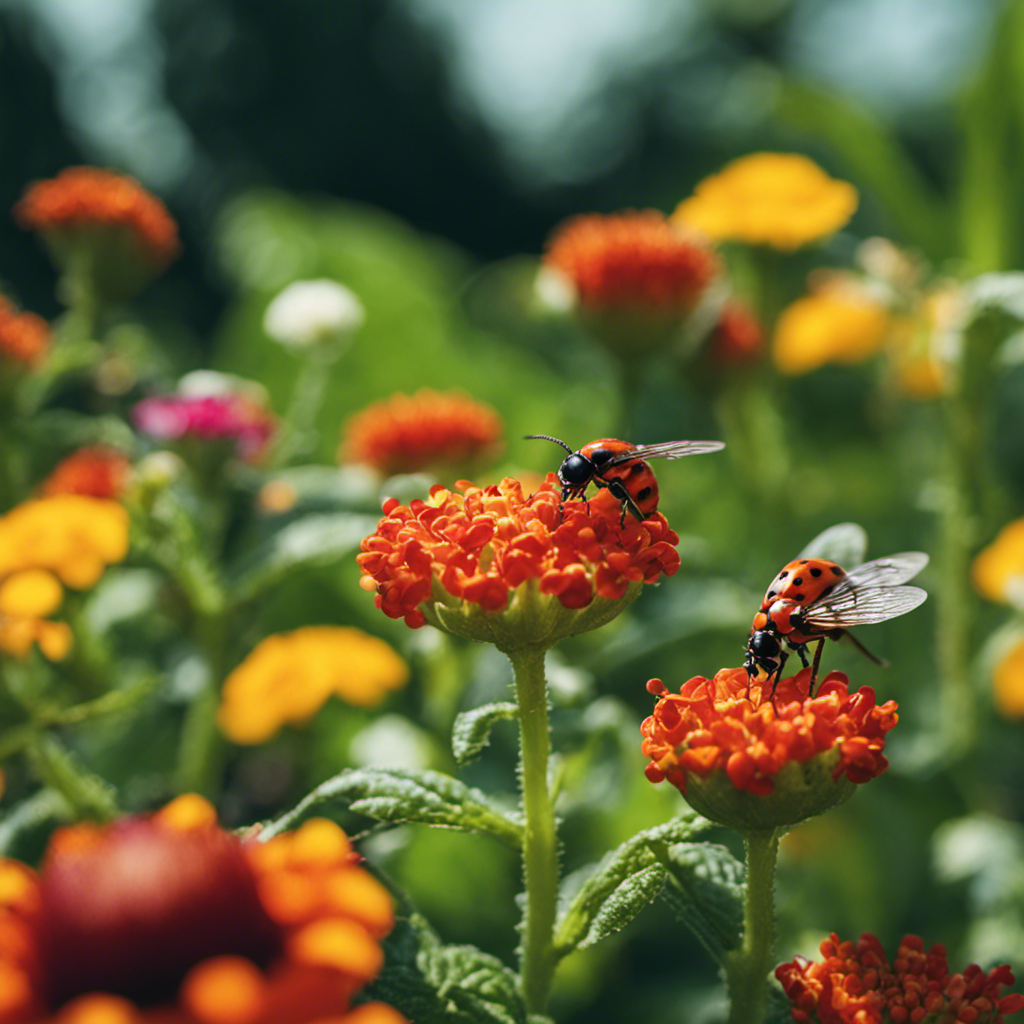
Encouraging Beneficial Insects in Your Garden
Invite beneficial insects to your garden by creating a welcoming environment. Attracting pollinators and creating an insect-friendly habitat is crucial for a thriving vegetable garden. By incorporating a few simple strategies, you can encourage these helpful creatures to visit and stay.
First, plant a variety of flowering plants that attract pollinators such as bees and butterflies. Choose plants with different bloom times to provide a continuous food source throughout the growing season. This diversity of plants won’t only beautify your garden but also provide a valuable food source for beneficial insects.
Avoid using pesticides, as they can harm beneficial insects. Instead, embrace natural pest control methods such as companion planting and crop rotation. Planting certain herbs and flowers alongside your vegetables can repel pests and attract beneficial insects that prey on them. Additionally, regularly rotating your crops can disrupt pest life cycles and reduce the risk of infestations.
Providing water sources like birdbaths or shallow dishes with pebbles can also attract beneficial insects. These insects need water for drinking and reproduction, so adding water features to your garden can make it even more appealing to them.
Finally, consider creating nesting sites for beneficial insects. Leaving patches of bare ground or incorporating insect hotels can provide shelter and a place for them to lay their eggs. These simple additions can make a big difference in attracting and supporting beneficial insects in your garden.
Practice Good Garden Maintenance
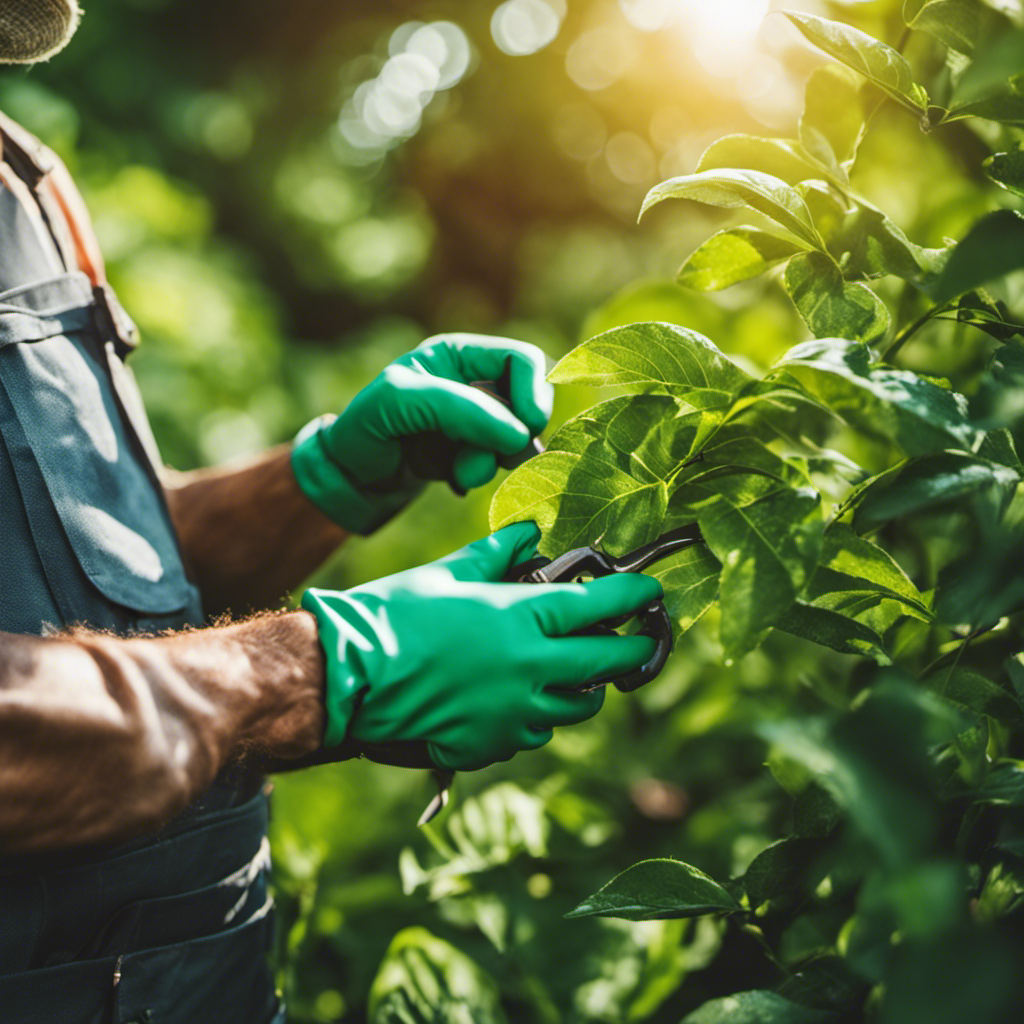
Maintaining a healthy garden requires regular care and attention. By following these simple steps, you can practice good garden maintenance and keep pests at bay:
-
Weed regularly: Promptly remove weeds to prevent them from competing with your plants for nutrients and water.
-
Water properly: Avoid overwatering, as it can cause root rot and attract pests. Instead, water deeply and infrequently.
-
Prune and trim: Regularly trim overgrown branches and remove dead or diseased leaves to promote air circulation and prevent pest infestations.
-
Use organic fertilizers: Choose organic fertilizers to nourish your plants. They promote healthy growth without harmful chemicals, benefiting both your plants and the environment.
By taking these preventive measures and using organic fertilizers, you can maintain a beautiful and thriving garden.
Conclusion
So there you have it, fellow gardeners. By using physical barriers, traps, and natural pest deterrents, as well as attracting beneficial insects and maintaining your garden well, you can naturally get rid of those annoying pests from your beloved vegetable garden.
With these effective techniques, your garden will thrive and flourish, free from the unwanted invaders that pose a threat to your precious plants. Embrace the power of nature and witness your garden transform into a beautiful and abundant sanctuary.
